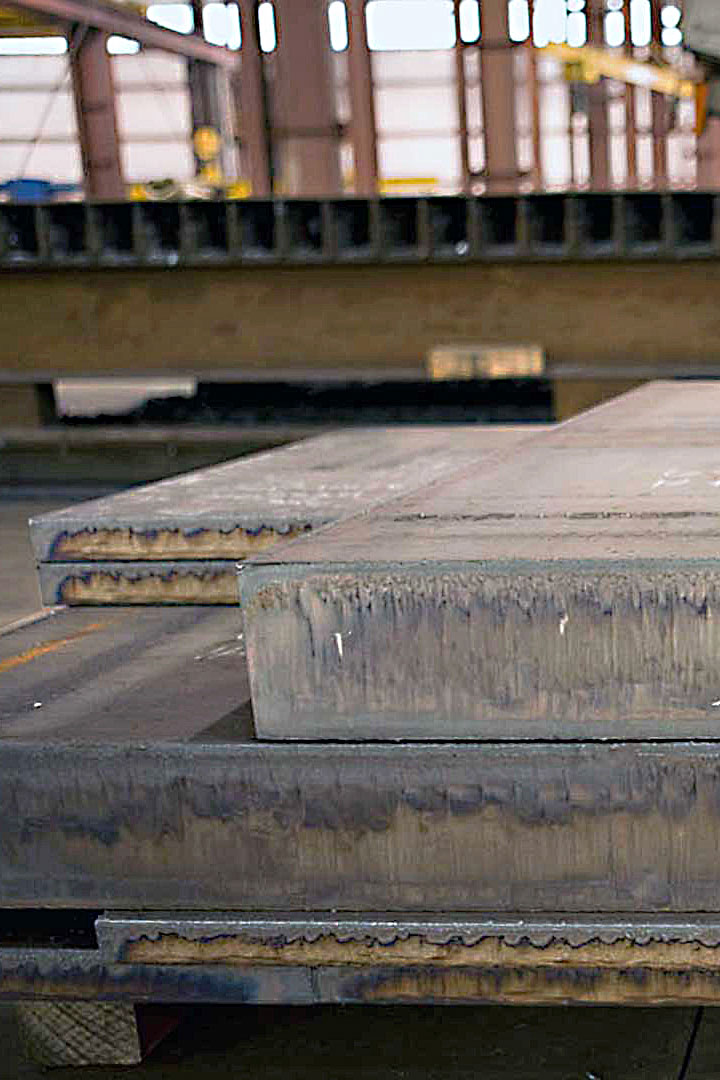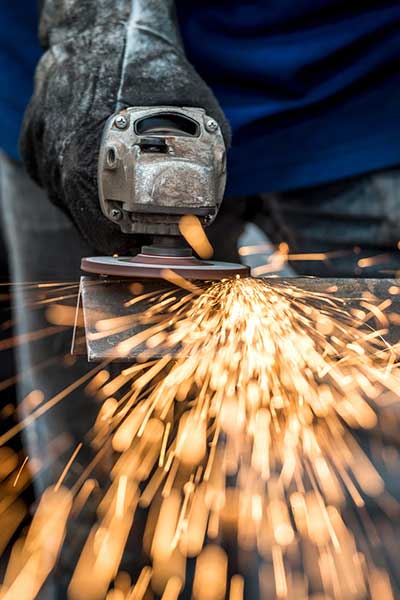Experimental Analysis of Welding Quality of Seamless Steel Tube
Combined with an example of a seamless steel tube oil cylinder fracture, it analyzes from the aspects of appearance, material chemical composition, microscopic experiment, macroscopic fracture, etc., and expounds the reason for the fracture of the 45 seamless steel tube oil cylinder cylinder and how to weld it with other parts . Carry out welding quality control.
Key words: seamless steel pipe; test analysis; quality control; welding
The average carbon content (mass fraction) of 45 seamless steel pipes is 0.42 % ~ 0.50 % , the average silicon content (mass fraction) is 0.17 % ~ 0.37 % , and the average manganese content (mass fraction ) is 0 50% ~ 0 80% , the average sulfur content (mass fraction X0. 035% , the average phosphorus content (mass fraction X 0.035%) , the average chromium content (mass fraction) X0. 25% , the average nickel content (mass fraction X0. 254 5% ) .
The cylinder barrel is the main part of the hydraulic cylinder. The technical parameters of this oil cylinder are: bore 0.150 mm , rod diameter 0.110 mm, stroke 1 950 mm, pressure
16 MPa, the material of the cylinder is 45 seamless steel pipes, and no heat treatment and surface treatment will be carried out after the seamless pipes are purchased. The processing technology of the cylinder barrel is: cutting to length (sawing machine ) turning process chuck - rough boring - fine boring and rolling inner hole. This oil cylinder is used as the lifting cylinder of the auger drilling rig. When the assembly is completed and the test run is completed, the cylinder barrel breaks, but other related parts are not damaged. After analysis, the reason is that there are welds with poor welding quality on the surface of the cylinder, which cause stress concentration at the defect and superposition of stress in the local area, and the performance index of the cylinder itself is low. These factors are the result of the joint action.
1 Test analysis
11 Macro Fracture Analysis The fracture of the cylinder barrel of the oil cylinder occurs at about 400 mm from the lower end. The outer diameter of the cylinder barrel is about 0.180 mm , the wall thickness is about 14 mm , and there is a weld seam about 70 mm long on the surface . The macroscopic analysis of the fracture shows that the fracture originates from the solder joint on the outer surface of the cylinder, which is a one-time rapid brittle tear. Samples near the fracture were taken from different parts for further test analysis.
1 2 Material chemical composition detection test
Table 1 Test results of cylinder base chemical composition (mass fraction) %
|
element |
C |
mn |
S |
P |
Si |
|
sample |
0.45 _ |
0.60 |
0. 014 |
0.020 |
0. 25 |
|
standard requirement |
0 42 ~ |
0 50 ~ |
< 0.035 |
< 0 035 |
0 17 ~ |
The test results show that all the elements of the base material are within the range required by the standard and are qualified.
1 3 Microstructure Analysis
1.31 Test of non-metallic inclusions in cylinder
2 for the test results of non-metallic inclusions in the cylinder .
Table 2 Test results of non-metallic inclusions in the cylinder
project |
Class A |
Class B |
Class C |
Class D |
Class Ds |
|
result |
2. Level 0 |
Level 1.0 |
Level 1.5 |
Level 1.0 |
Level 1.0 |
|
standard requirement |
< class 3.0 |
< class 3.0 |
< 3.0 level _ |
< 3.0 level _ |
< class 3.0 |
1.3.2 Cylinder crack source area from the surface to the core structure, grain size test
Cylinder crack source area from the surface to the core structure, grain size test results
See Table 3 .
Table 3 Test results of the microstructure and grain size of the cylinder crack source area from the surface to the core
Part item |
organize |
grain size |
|
Surface weld |
Acicular ferrite + bainite + sorbite distributed along coarse columnar grain boundaries |
1. Level 0 ~ Level 2.0 |
|
heat affected zone |
Needle-like, lath-like martensite and a small amount of intergranular distribution of trotenite |
Level 3.5 |
|
Base metal |
Pearlite + massive, acicular ferrite, Widmanstatten grade 3 |
6. Level 0 and Level 3. 0 |
Conatct us




